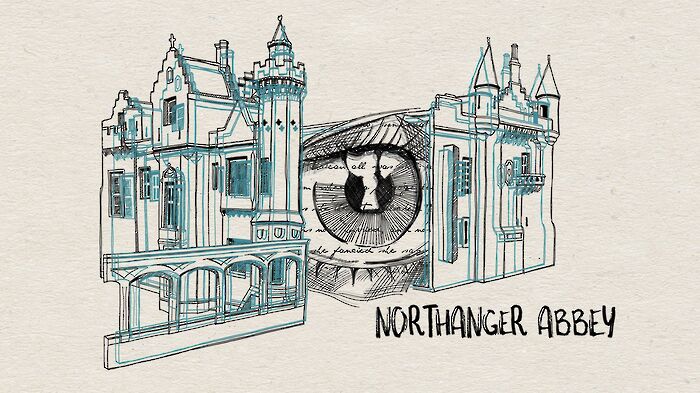The Homecoming preview
Mastering the Pinter pause, prioritising the dramatic word, the female as the beating pulse: a reworking of Harold Pinter’s classic dark comedy takes to the Robinson stage

Harold Pinter’s classic dark comedy, ‘The Homecoming’, opens next week in the Robinson Auditorium, the first of Brickhouse Theatre Company’s shows this term. Set in the 1960s, the whole play takes place the front room of a large North London family home, in which a retired butcher Max (Isaac Zarnet) lives with his brother Sam (George Solomou), a chauffeur, and two of his three adult sons: the enigmatic and intelligent Lenny (Lucas Marsden-Smedley) and the clumsy boxer, Joey (Gideon Lee).
Having established the toxic and bitter environment of the all-male household, the real action of the play begins when Max’s eldest son, Teddy (Niall Conway), a Doctor of Philosophy at an American university, abruptly returns to the family home for the first time in six years, bringing with him his wife, Ruth (Thea Mead), to introduce her to the family. From this point of reunion, a series of complex and disturbing encounters ensues between the six characters with Ruth as the beating pulse of the action, all from within the one sparsely furnished and decaying room.
"Our version, we hope, gives the play control, and we have tried to let the actors fall into sync with the words"
It is not, however, the action of this play – disturbing though it is – but Pinter’s language which most sticks in the memory of audiences, whom the play has confounded since its debut in 1965. Director Angus Jackson has chosen to tackle the difficulties the play presents by giving words the priority, working closely with the rhythms and intricacies of the script with the actors from day one as opposed to focusing on motivation or given circumstances. Rather than trying to ascribe direct meaning to each phrase, Jackson and his team have worked to give primacy to the rhythms of the language itself, as opposed to any possible subtext or hidden motivation. Isabella Horspool, one of the Assistant Directors, describes the play as “jarring and captivating, symbolic and open-ended, plausible and completely shocking.” Whilst this may sound like a play of contradictions, Horspool argues, “it’s not really, it’s actually incredibly coherent I think, it’s perhaps better described as an incredibly unique, fine-tuned and deeply satisfying piece of work, which we are all desperately trying to do justice. Our version, we hope, gives the play control, and we have tried to let the actors fall into sync with the words, which I think they have done brilliantly, and in rehearsals are giving performances which highlight the humour of the piece, whilst also keeping a tight hold on its unsettling tone. It’s often quite scary. I actually find them all terrifying, but also endearing, I suppose.”
The time and energy spent on the language of the play is clearly visible in the actor’s performances. From Zarnet’s wild and overpowering monologues as Max, and Conway’s clipped, laconic Teddy, to Marsden-Smedley’s meandering narratives as Lenny and Mead’s quietly assertive Ruth, each actor has honed the precise idioms and register of their character. The famous Pinter pause, so often a cause of trouble in a rehearsal room, has been harnessed and honed to tremendous effect. Helena Brann, the second Assistant Director, explains: “we’ve tried incredibly hard to make sure that there is no “empty space,” no pause without effect, and no meaningless silence.” Rehearsals, she says, have been “surprisingly upbeat for such muscular material” and a “collaborative effort” of Jackson’s intricate study of the script and the actors’ natural desire to find motivation and meaning.
"the reworking of the role of Ruth in this production is given particular force by Mead’s icy serenity amidst the chaos which surrounds her"
Against a sparse set made up of a large armchair, a sofa and other scattered furniture, the play moves forward at a startling pace, giving the audience no time to catch their breath from one encounter to another. The reworking of the role of Ruth in this production, from a submissive pawn in the schemes of the all-male household, to a calm but subtly dominating woman, gradually manipulating the men into doing what she wants, is given particular force by Mead’s icy serenity amidst the chaos which surrounds her. Talking about Ruth’s role, Jackson elliptically says, “Ruth is a character we cannot begin to understand. And that is where her power lies. If knowledge is power, then the fact we know, that we can know, nothing at all about Ruth from what she says, and what is said about her, is a great weapon.” But with this play, you can never be sure and attempts to find a single meaning, or even a dominant theme, are bound to be confounded, according to Jackson: “Ruth is important. But the play is not about Ruth, and it is certainly not about sexism or gender. If it is about anything, it is about language, the ways in which we communicate – or fail to communicate – our innermost desires and thoughts.”
John Lahr, a famous Pinter critic, wrote that seeing ‘The Homecoming’ “changed his life”. It may change yours. At the very least, the language of the play will make you think differently about how you yourself communicate, and the performances of this incredibly talented cast will keep you on the edge of your seats throughout. As Horspool aptly puts it, “at the very least there will be beautiful people saying beautiful words that have been making people think for almost half a century.”
The Homecoming is being performed at 7.30pm from the 7th-10th November in Robinson Auditorium. Get your tickets here: https://brickhouse.tessera.info/tickets/the-homecoming
 Features / Should I stay or should I go? Cambridge students and alumni reflect on how their memories stay with them15 December 2025
Features / Should I stay or should I go? Cambridge students and alumni reflect on how their memories stay with them15 December 2025 News / Cambridge study finds students learn better with notes than AI13 December 2025
News / Cambridge study finds students learn better with notes than AI13 December 2025 Comment / The magic of an eight-week term15 December 2025
Comment / The magic of an eight-week term15 December 2025 News / News In Brief: Michaelmas marriages, monogamous mammals, and messaging manipulation15 December 2025
News / News In Brief: Michaelmas marriages, monogamous mammals, and messaging manipulation15 December 2025 News / Uni Scout and Guide Club affirms trans inclusion 12 December 2025
News / Uni Scout and Guide Club affirms trans inclusion 12 December 2025










